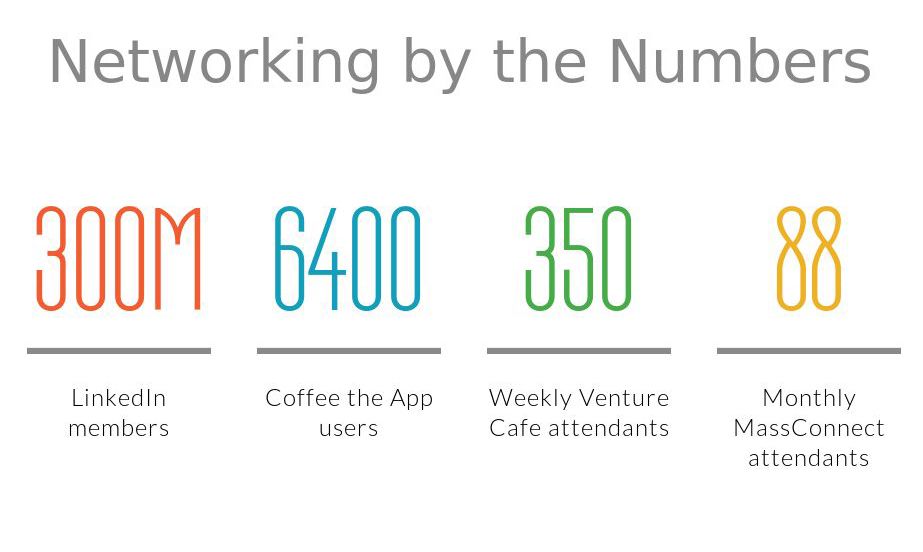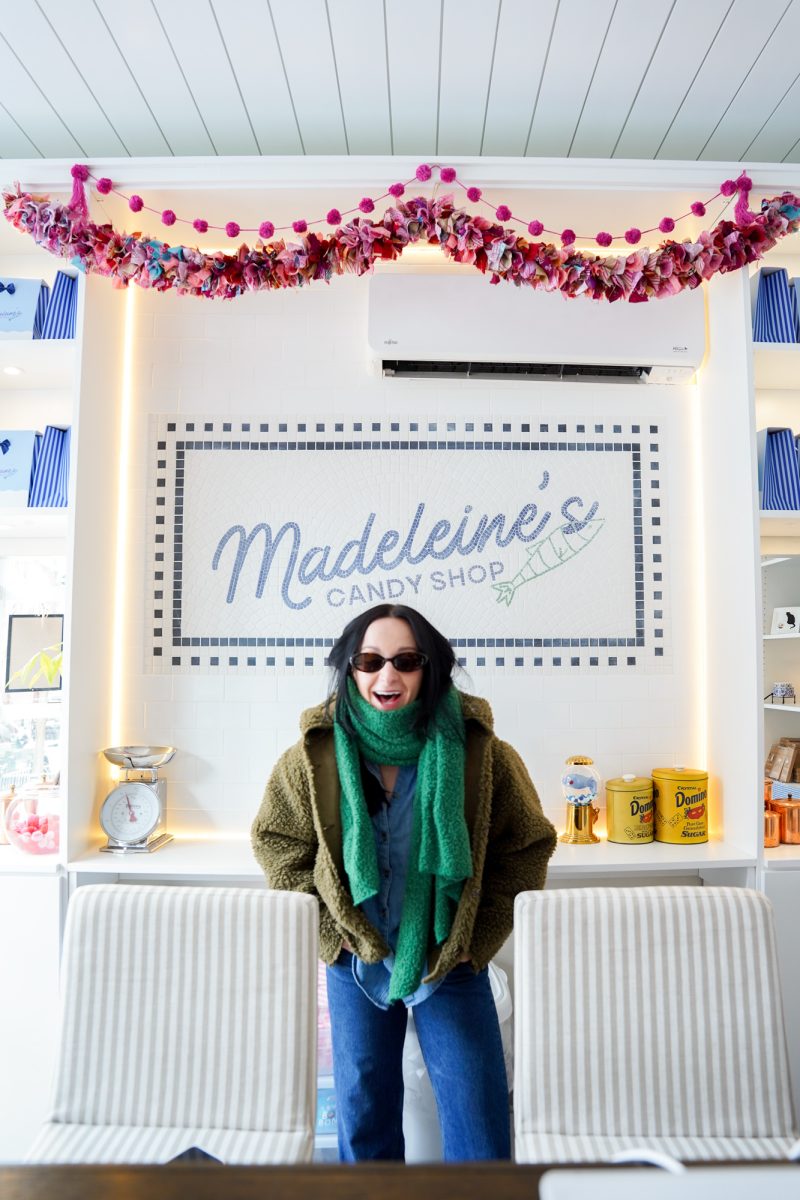It is not about what you know; it’s about who you know, or so says the old adage. With an increasingly competitive job market, emphasis on networking has grown among college students and recent college graduates. It’s how exactly young professionals go about that networking process that’s seeing some changes. From specialty-focused in-person networking workshops to smart phone apps that connect users with potential employers, finding a job in the digital age is a whole new ballgame.
In Boston, where 35 percent of the population is between ages 20 to 34, according to the 2010 U.S. Census, independently organized networking events have started to surface. While some cater to certain industries, such as the technology and startup crowds, others are more industry-agnostic.

One of the local general networking events is MassConnect, which occurs on a monthly basis at Julep Bar, said event organizer Nate Therrien.
“What I found a lot of the events in Boston do is they have a speaker series or a panel or discussion, but there weren’t that many that were straightforward networking,” he said. “I always thought, for the most part, people going to these events…go there for the networking portion of the event. But then as the event goes on, they bring things down, they go into the panel discussion. And the networking kind of comes to an end. The way I designed the event, it’s just networking to meet as many people as you can.”
Therrien said social networking has helped him organize MassConnect.
“I had a LinkedIn group. I grew that to 300 people, and when it got to 300 people, that’s when I did my first event,” he said. “And the event has grown ever since.”
Therrien charges a $10 attendance fee and usually gets about 75 to 100 people at each event.
In part, MassConnect is a byproduct of Therrien’s ambitions for his insurance brokerage business, Insurance and Benefits Services of Massachusetts.
“Just for my purposes, I use the event almost like a marketing tool for my business…My primary market is startup companies. So for my own selfish purposes, I want to see that come to the table. I want to bring that to me,” he said. “Doesn’t mean it is not open to anyone and anything, but there is a theme to it.”
At Boston University, the BU Finance and Investment Club organizes two specialized networking events throughout the academic year, said Jake Siegel, president of BUFC and a senior in the School of Management.
Their first event, called “Your Future in Finance,” takes place on Oct. 25 and features speakers, career development workshops and open table networking. Siegel said the event usually brings in 50 to 80 alumni and between 150 to 200 students.
The second large-scale networking opportunity BUFC provides is a visit to Wall Street in the spring, said Siegel. He said the group is bused into Manhattan to meet with senior alumni still involved in the club and participate in office visits.
“We’ve been able to visit alumni at Goldman Sachs, Citigroup, JPMorgan, Credit Suisse and that’s really a tremendous opportunity,” he said.
BUFC, which also runs an investment fund, trains its members for professional success by combining two aspects: hard skills acquired from investment research and soft skills gained from developing interpersonal skills through networking.
“They [those skills] go hand-in-hand with each other and especially in financial services,” Siegel said. “There are really two components in the evaluation of a candidate…For example, in SMG, it is very difficult to get exposure to finance courses prior to your junior year, but in the Finance Club, you can get that skillset two years in advance compared to your peers…It’s much easier to make a positive impression, much easier to explain your passion for your industry and willingness to learn, when you have been developing your skillset.”
One specialized networking event outside of BU’s campus is Venture Café, which is held at the Cambridge Innovation Center on Thursdays.
Attracting about 350 people per session, Venture Café caters to the startup crowd, offering information tables, office hours and workshops, said Kevin Wiant, executive director of the Venture Café Foundation.
“We do get a wide swath of the innovation ecosystem,” Wiant said. “We have people from various different sectors and support groups which help early-stage companies, founders and innovation projects at large companies and nonprofits and government.”
Wiant said college students visit Venture Café regularly.
“They [college students] get to meet with people who had experience starting up companies…so it helps accelerate their learning about the opportunities and challenges about building a startup, as well as the opportunity to share their ideas with experienced folk to get some feedback, as well as look for resources that might help them start and grow a company,” he said.
Though the attendance numbers at MassChallenge and Venture Café show that in-person networking is still a popular option, Boston-area events such as FutureM, Mass Innovation Nights, Mobile Monday and Network After Work indicate networking is starting to have applications in the digital world.
But Coffeetheapp is taking digital applications for networking a step further.
Founded by BU graduates Nathan Bernard and Sawyer Xie, Coffee, which launched July 8, aims to connect job seekers with hiring managers, Tinder-style.
“The idea is you can connect with hiring managers,” Bernard said. “If you are a job seeker, you can also connect with other job seekers to network and learn what the best practices are in interviews and what the best practices are to network your way into your next opportunity…maybe you’ll get a referral and recommendation from someone on the app and find your next gig.”
Coffee boasts 6,000 job seekers and 400 hiring managers, he said.
The user first signs up via Facebook or LinkedIn, Bernard said. He or she then crafts a 140-character description and chooses tags that reflect their interests, what they’re looking for in a hiring manager and the type of job they’re seeking. After that, users are able to view a card deck, swiping left to pass or right to indicate interest.
“We see about 54 percent of our users come back on a weekly basis. About 15 to 17 percent come back on a daily basis,” Bernard said. “We see 450 matches on average per day.”
The main user demographics for Coffee are current college students and recent college graduates, Bernard said.
“Right now, 75 percent of job seekers are between the ages of 21 and 25. That’s where we were a couple weeks ago, especially students at BU and NYU [New York University],” he said. “We’ve made a real effort to make the inroads in two different schools.”
Networking, like many other activities, will move online as it gains more traction, Bernard said.
“In the next five years, I would think that 80 percent of hiring is done through a mobile device and that’s how the [human resources] guys are projecting it out,” he said. “So mobile recruiting is huge, and it has a social component. For physical networking, that’s always nice. But I don’t think it is 100 percent necessary.”


















































































































